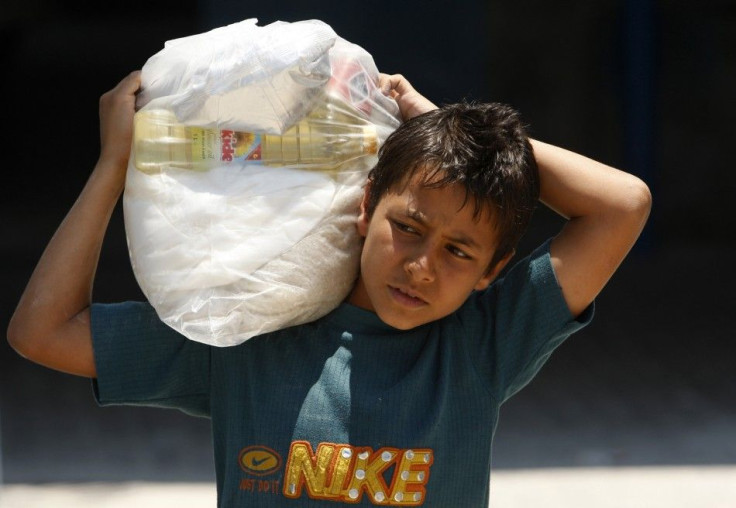UN Report Blames Israel Blockade For Gaza’s Economic Turmoil

A United Nations report highlights the extreme economic hardships suffered by the people of Gaza, as the blockade by Israel enters its fifth year.
The jobless rate in Gaza was at 45.2 percent at the end of last year, one of the highest figures in the world. (However, that’s slightly better than the 45.7 percent rate recorded at the end of 2009).
Over the past five years, real wages have plunged by 34 percent, according to a survey by the UN Relief and Works Agency for Palestine Refugees (UNRWA).
The report noted that the ban on almost all exports has hurt private business enterprises in Gaza the hardest.
These are disturbing trends and the refugees, who make up two-thirds of Gaza's 1.5 million population, were the worst hit, said UNRWA spokesman Chris Gunness in a statement.
It is hard to understand the logic of a man-made policy which deliberately impoverishes so many and condemns hundreds of thousands of potentially productive people to a life of destitution,
Israel imposed harsh sanctions on Gaza in the summer of 2006 after Hamas militants captured Israeli soldier Gilad Shalit during a cross-border raid. One year later, the sea, land and air blockade was intensified when Hamas toppled the more moderate Fatah from Gaza.
A BBC correspondent in Gaza indicated that “as the blockade enters its fifth year, one of the key findings of this UN report is that the Hamas-run public sector is one of the only areas of the economy that is growing. Hamas employs tens of thousands of people here. Private businesses have largely been crippled by the ban on virtually all exports and the fact that Gazans just don't have the money to spend.”
Indeed, Gunness indicated that since 2007 Hamas has increased the number of state workers by about 20 percent, at least.
If the aim of the blockade policy was to weaken the Hamas administration, the public employment numbers suggest this has failed, he said.
Israel has long contended that Hamas is a terrorist organization and that its blockade is necessary to prevent the smuggling of weapons into Gaza. However, the UN responds that the blockade simply serves to hurt ordinary Gazans.
Yigal Palmor, a spokesman for Israel’s foreign ministry, told BBC: We are totally in favor of Hamas accepting the international community's pre-conditions to become an interlocutor. If they only accepted that - surely that's not too much to ask, to recognize Israel, and to agree to negotiate with Israel - then Hamas would be accepted by Israel too as an interlocutor. And that would certainly immediately alleviate the plight of Gaza.”
However, Palmor added: “Hamas insists on remaining committed only to an all-out war, and that is the systemic explanation of what is happening in Gaza.
Hamas steadfastly rejects recognizing Israel and will not renounce violence.
© Copyright IBTimes 2024. All rights reserved.





















